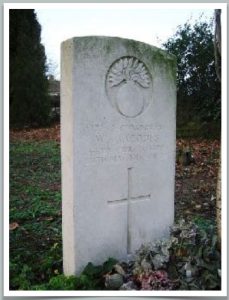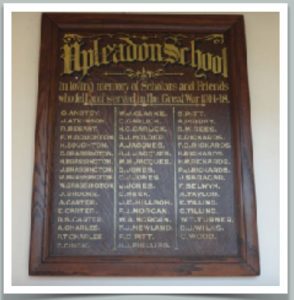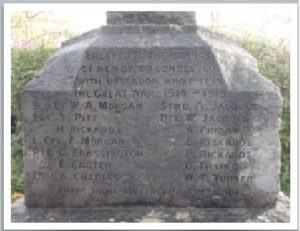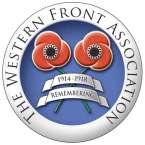5th Battalion, Grenadier Guards

William Henry Jacques was born on 11 May 1893 in Upleadon, near Newent and baptised in Upleadon on 3 September 1893.
William was the son of William Jacques and Rosina (née Drew), and his siblings were Hannah Rosina (born 1877), Alfred Thomas (1880), Eleanor May (also known as Ellen – 1882), Eva May (1884), Alice Victoria (also known as Victoria – 1887) and Hubert John (1895).
His father was born in 1857 in Newent and his mother in the same year in Gorsley or Linton which is in Herefordshire. They married on 18 March 1877 at St Mary’s Church, Newent. Rosina died in 1931 and William in 1935; both are buried in the Watery Lane Cemetery Newent (Grave Number 994).
In 1881, his father was a Carter working on local farms and the family were living at Carswells which is situated between Newent and Upleadon.
In 1891, the family were living at Little Carswells and his father was listed as an agricultural labourer. William was still living with his parents and brother Hubert at Little Carswells in 1901 and 1911, but in 1911 his elder brother Alfred was also listed at the same address.
Aged 17 years, William Henry was a Farm Labourer and wWhen war broke out, William enlisted in Gloucester into the Grenadier Guards, being initially allocated Service Number 17258.
After initial training, the 1st Battalion was posted to France in October 1914 landing at Zeebrugge; and in March 1915 they were involved in the Battle of Neuve Chapelle. The battle was the first large scale attack undertaken by the British Army and used over 40,000 men. It began on 10 March and, although they recaptured the village of Neuve Chapelle, over 11,000 men were killed.
William was badly wounded and was taken to a casualty clearing station, and then on to a local Army Hospital in France. He was then transferred to St Bartholomew’s Hospital in London where he subsequently died.
He served as a Private in the Grenadier Guards, but Guardsman appears on his memorial headstone. In 1919, the King commanded the rank of Guardsman replace that of Private in recognition of the regiment’s efforts during the war. As William died in 1915, it is suggested he should have been referred to by his rank at the time of his death – unless of course his memorial was not installed until after the change.
There is some discrepancy with his service number, being 17255 or 17258 on various records. Number 17258 is engraved on his Commonwealth War Graves Commission memorial; and a mix of 17255 and 17258 in the CWGC graves registration and headstone reports.
Soldiers Died in the Great War gives his number as 17258. He is also registered as 17258 in the UK Army Register of Soldiers Effects, where he is listed as being of the 4th Battalion, Grenadier Guards; and on his edal Index Card where he was awarded the British, Victory, and 1914-1915 Star — and France was given as his Theatre of War.
Elsewhere, he is also referred to as being in the 5th Battalion which was a Reserve Battalion used to carry out ceremonial duties in London and Windsor during the war.
With the exception of the records stated above, it would appear that his full service records might have been part of the document collection WO363 destroyed during the WW2 bombing of London in September 1940.
William died aged 22 on 24 May 1915 in St Bartholomew’s Hospital, London from the wounds that he sustained in action. It is recorded that his father received the War Gratuity.
A military funeral was held in Newent a few days later, and he was buried in Grave Number 432 in Newent Cemetery. It should be noted that the Cemetery on Watery Lane is not adjacent to St Mary’s Church, which is situated in Church Street in the town centre.
William is commemorated with his brother Alfred on the Newent War Memorial, situated in front of St Mary’s Church, Church Street; and with his brothers Alfred and Hubert on both the Upleadon War Memorial and the Upleadon School Roll of Honour.
William’s brother, Alfred Thomas Jacques, was born in 1880 and christened in St Mary’s Church, Newent on 1 February 1880.
In 1902, he joined the Merchant Navy and served on the SS London until 1907. He is recorded as being 5 foot 7 inches tall with black hair, brown eyes and a fresh complexion.
By 1911 he was still single and a Domestic Butler, although he had returned home to the family. Later that year, he enlisted in the Navy’s Mercantile Marine Reserve as an Assistant Steward and joined HMS Viknor, which was originally built in 1888 under the name Atrato. She was bought by the Viking Cruising Company in 1912 and renamed The Viking.
In 1914, she was requisitioned by the Admiralty and renamed HMS Viknor and refitted as an armed Merchant Cruiser under the command of Commander Ernest Orfod Ballantyne in the Navy’s 10th Cruiser Squadron.
In January 1915, HMS Viknor was on its way from Kirkwall in Orkney to Liverpool when, on 13 January, she sank with all hands (a crew of 295) in heavy seas off Tory Island, County Donegal.
Because she sank without giving a distress signal, it is thought that she may have struck a German naval mine.
Some wreckage and many bodies were washed ashore on the Northern coast of Ireland. After an extensive search the wreckage was located in 2006. In 2011 a scuba diver placed a White Ensign on the wreck in memory of those who died.
Alfred was entitled to the 1914-15 Star, the British War Medal, and the Victory Medal.
Tragedy therefore struck the family twice in 1915 when Alfred, aged 35 years, died some four months before his brother William’s passing.
Alfred’s cause of death was given as ‘killed or died by means other than disease, accident or enemy action’. His body was not recovered for burial, but he is commemorated in the Steward Department, Panel 10 on the Plymouth Naval Memorial; on the Newent War Memorial; on the Upleadon War Memorial and on the Upleadon School Roll of Honour.
At the time of his death, his parents’ address was given as Little Ford House, Newent, Gloucestershire.
The better news is that the third son, Hubert, who served in the Royal Army Service Corps as part of the Horse Transport Section (number T/35296), survived the war and died in Newent on 2 March 1965.
The reason that Hubert is mentioned on the Upleadon School Roll of Honour is because the Roll is in honour of Scholars and Friends who fell and served in the Great War.

Upleadon School Roll Of Honour

Upleadon War Memorial
Researched by Baden Russell October 2020 who adds: “I wish to thank Dood Pearce, Chairman of Newent Local History Society, for his valuable contribution towards the biographies of William and Alfred Jacques”
